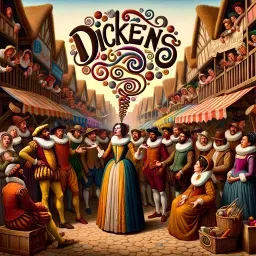A man can die but once

0
0
0
0
- Meaning
- At its core, the phrase "A man can die but once" suggests that death is an inevitable part of the human condition and that it can only occur once to an individual. It can be interpreted as a call to bravery and to face life’s challenges without fearing death excessively. The notion highlights that since we have only one life to live and one death to face, we should live fully and fearlessly.
- Allegory
- The brave knight on the windswept hill represents the courage to face life’s challenges, reminding us that "A man can die but once." His resolute gaze and the solitary tree in the distance emphasize the acceptance and understanding of life’s singular end. The setting sun symbolizes the inevitable passage of time and the approach of death, while the shadows of past battles remind us of the experiences and struggles that shape our journey. Together, these elements encapsulate the phrase’s essence, urging us to live with bravery and without undue fear of death’s certainty.
- Applicability
- In personal life, this phrase can serve as a reminder to not let the fear of death prevent one from taking risks, pursuing dreams, or living a fulfilling life. It encourages courage and determination by emphasizing the singularity of death and implying that we should make the most of our lives given our mortal nature.
- Impact
- The impact of this phrase has been enduring, as it reflects a universal truth about human mortality. It has inspired various literary works and continues to be cited in modern discourse to encourage bravery and resilience. It also serves as a philosophical reflection on the nature of life and death.
- Historical Context
- The phrase's historical context dates back to the late 16th and early 17th centuries, a time when ideas surrounding death and the brave acceptance of one's fate were significant themes in literature and societal values. The Elizabethan era, in which Shakespeare wrote, appreciated stoic philosophy, which included the notion of facing death with dignity.
- Criticisms
- There haven't been significant criticisms or controversies directly related to this phrase. However, it could be interpreted by some as a somewhat simplistic view of life and death, potentially ignoring cultural nuances regarding the concept of multiple lives or afterlife beliefs in different cultures.
- Variations
- Variations of this phrase can be found in different cultures and philosophies that emphasize the inevitability of death and the importance of living life courageously. For example, some Eastern philosophies discuss the concepts of reincarnation or the eternal cycle of life, which offer a different perspective but still acknowledge the significance of facing mortality.
-

The golden age is before us, not behind us.
-

Something is rotten in the state of Denmark.
-

Give me my robe, put on my crown; I have immortal longings in me.
-

The better part of valor is discretion.
-

As merry as the day is long.
-

What's done cannot be undone.
-

The devil can cite Scripture for his purpose.
-

To thine own self be true.
-

Uneasy lies the head that wears a crown.
-

I am one who loved not wisely but too well.
-

I cannot tell what the dickens his name is.
-

This above all: to thine own self be true.
No Comments